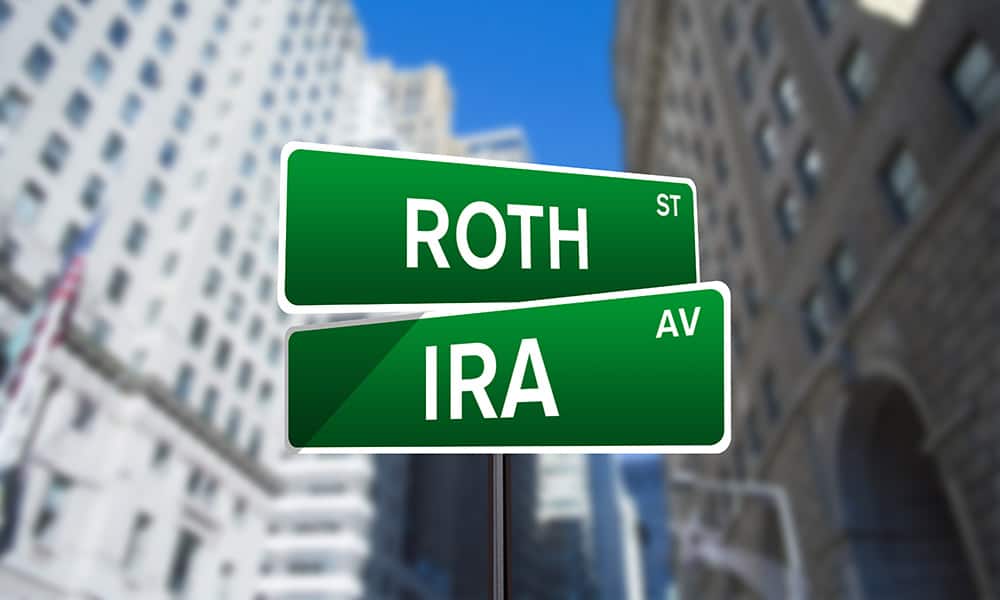

Individual Retirement Accounts (IRAs) are exactly what they sound like – they’re special accounts that are given preferential tax treatment that help people save for their retirement. A Roth IRA is a specific type of IRA that has its own unique tax benefits.
There are pros and cons of Roth IRAs to consider when deciding whether to open a traditional or a Roth IRA.
Pros of Roth IRAs
So what exactly are the pros of Roth IRAs? Roth IRAs are designed to help savers designate money for use when they retire. The biggest benefit of a Roth IRA is how that money is treated when it comes to taxes.
1. Tax Savings
When you place money in a Roth IRA, you pay taxes on it like normal. Unlike a 401(k) or Traditional IRA, you do not get to deduct the contribution on your income taxes for that year. Instead, the money you place in a Roth IRA is never taxed again. Any return on investment that you earn is yours, completely tax-free.
Over long periods of time, that tax savings can be immense. If you save $10,000 when you’re 30 and earn an average return of 8% by investing it, you’ll have an account balance of $100,000 by the time you’re 60.
If you sold your investment, you’d normally owe taxes on the $90,000, which could eat up as much as $13,500 of your return. Had you put that $10,000 into a Roth IRA when you were 30, you’d owe no taxes on the returns.
2. Investments Returns Are More Predictable
On top of the tax savings, another one of the benefits of a Roth IRA is that it makes determining how much income you will have in retirement much easier.
When you have to account for taxes on your investments, you can’t quite be sure how much your investment in a mutual fund is really worth. Doing the math to find out exactly how much you’ll pay in long term capital gains, short-term capital gains, and other taxes when you sell an investment is difficult.
With money in a Roth IRA, you’ll know that every cent will wind up in your pocket, ready to be spent.
3. Flexibility
The other aspect of a Roth IRA that sets it apart from its Traditional counterpart is its flexibility. Both types of IRA restrict your ability to withdraw money until you reach retirement age, which is 59 ½ years old.
Because money contributed to Roth IRAs is already taxed, it wouldn’t make sense for there to be a penalty for withdrawing it early. That means that you are able to withdraw any contributions you’ve made to your Roth IRA at any time.
If you find yourself in a financial emergency with your money locked away in retirement accounts, it can be painful having to pay a 10% early withdrawal penalty just to get access to your own money. With a Roth IRA, you can use that money without worry.
Cons of Roth IRAs
So what about the cons of Roth IRAs? There are two significant downsides to Roth IRAs.
The biggest downside is also the reason for Roth IRAs’ biggest strength – you don’t get to deduct contributions from your income during tax season. If you have a high income, you could be paying tax rates as high as 40%. Passing up on a savings that large by contributing to a Roth IRA instead of a Traditional IRA can be painful.
The other downside of a Roth IRA is that you are only allowed to contribute up to $5,500 per year to IRA accounts. That can make it difficult to build up a significant balance early in your career. If you want to grow your Roth IRA significantly, you’ll need to make consistent contributions over the course of many years.
When Does Investing in a Roth IRA Make Sense?
Given the unique tax treatment of a Roth IRA, as well as the fact that you can withdraw contributions at any time, there are certain scenarios where contributing to a Roth IRA is a great idea.
The best time to contribute is when you are early in your career. Typically, your earnings will be at their lowest, meaning you’ll get the least tax benefit from deducting Traditional IRA contributions and the most tax benefits from letting the money grow untaxed.
Another reason to contribute early in your career is that your Roth IRA can serve as an emergency fund if you aren’t able to keep a separate one.
Because there is a limit to how much you can contribute each year, and the unused amount does not roll over from year to year, contributing as much as you are able gives you the biggest benefit. You can contribute to your Roth IRA so you don’t lose out on the tax advantaged space, knowing that you can get the money out again if you need to.
However, it might be a good idea to make some contributions to your employer’s 401(k) before focusing on your Roth IRA. If your employer offers matching contributions, make sure you contribute enough to your 401(k) to take full advantage of those before contributing to your Roth IRA.
Now that you know all of the Roth IRA’s pros and cons, you should be able to make a well-informed decision when it comes choosing the account to use when planning for your retirement.
Photo credit: InvestmentZen Images – Creative Commons Attribution License





























